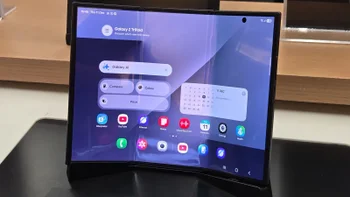T-Mobile wants to protect your entire network without extra gear
The Un-carrier is baking Palo Alto Networks security right into the core.

Last month, AT&T rolled out a new cybersecurity offering meant to help businesses stay ahead of online threats. And now, T-Mobile is jumping in with something similar – teaming up with the same cybersecurity powerhouse behind AT&T's solution.
T-Mobile just teamed up with Palo Alto Networks to launch a new service called "T-Mobile SASE, with Palo Alto Networks." It's a managed security offering powered by the Un-carrier's 5G Advanced network and Palo Alto Networks' cloud-native Prisma SASE 5G platform.
This partnership brings a serious boost in cybersecurity for T-Mobile for Business customers. The whole point? Make it easier for companies to protect their networks, data and devices – without having to install extra gear or mess with additional software. And it's not just businesses – government agencies can benefit too.
And that's not just a talking point. Businesses today are under constant pressure from growing cybersecurity threats – especially with more mobile workers, more IoT devices, and more stuff that needs protection. Think 5G routers, smart sensors, and other hardware that's constantly online.
According to industry forecasts, 5G IoT connections in North America are expected to jump from 5 million in 2025 to 39 million by 2030. That's a massive jump – and a huge challenge for IT teams.
Here's how T-Mobile's new solution is built to handle all that:
T-Mobile says the new SASE offering will roll out this summer, giving businesses another security-focused reason to consider switching to or expanding with the Un-carrier. And with Palo Alto Networks' proven security stack behind it, this could be a strong move for T-Mobile in the enterprise space.
This partnership brings a serious boost in cybersecurity for T-Mobile for Business customers. The whole point? Make it easier for companies to protect their networks, data and devices – without having to install extra gear or mess with additional software. And it's not just businesses – government agencies can benefit too.
What makes this solution different is that it is built right into the network. It allows users and devices to securely connect to private apps, SaaS (Software as a Service) platforms and the internet – while keeping security tight and visibility high across all endpoints. T-Mobile's bringing security right into its 5G core, which means no bolt-on fixes – just protection that's part of the architecture from the start.
At T-Mobile for Business, we're redefining secure connectivity for the 5G era with mobility-driven solutions designed to scale effortlessly. By adding Palo Alto Networks' proven SASE capabilities into our 5G Standalone network, we're delivering built-in security from the ground up, empowering our business and government customers with a seamless solution that protects their data across every endpoint, enabling them to operate confidently in an increasingly connected world.
– Mishka Dehghan, SVP of Strategy, Product & Solutions Engineering, T-Mobile Business Group, May 15, 2025
According to industry forecasts, 5G IoT connections in North America are expected to jump from 5 million in 2025 to 39 million by 2030. That's a massive jump – and a huge challenge for IT teams.
Here's how T-Mobile's new solution is built to handle all that:
- T-Mobile 5G Advanced: Uses a full Standalone 5G architecture with security baked in. That means encryption across interfaces, subscriber IDs and even inter-operator traffic. It also blocks downgrade attacks that target old-school network protocols.
- T-SIMsecure: Adds strong security at the SIM level – without needing client-side software. It uses SIM-based, clientless authentication based on International Mobile Subscriber Identity (IMSI) and International Mobile Equipment Identity (IMEI) to simplify management and support things like IoT devices or 5G routers that can't run traditional SASE software. It even helps non-T-Mobile SIMs install Palo Alto Networks' security tools on any connection.
- Security Slice: This creates a virtual slice of T-Mobile's 5G network that acts as a secure lane for your data. It isolates traffic, improves performance and gives users faster speeds with lower latency – something Wi-Fi and older LTE networks can't really match.
T-Mobile says the new SASE offering will roll out this summer, giving businesses another security-focused reason to consider switching to or expanding with the Un-carrier. And with Palo Alto Networks' proven security stack behind it, this could be a strong move for T-Mobile in the enterprise space.
Follow us on Google News













Things that are NOT allowed:
To help keep our community safe and free from spam, we apply temporary limits to newly created accounts: